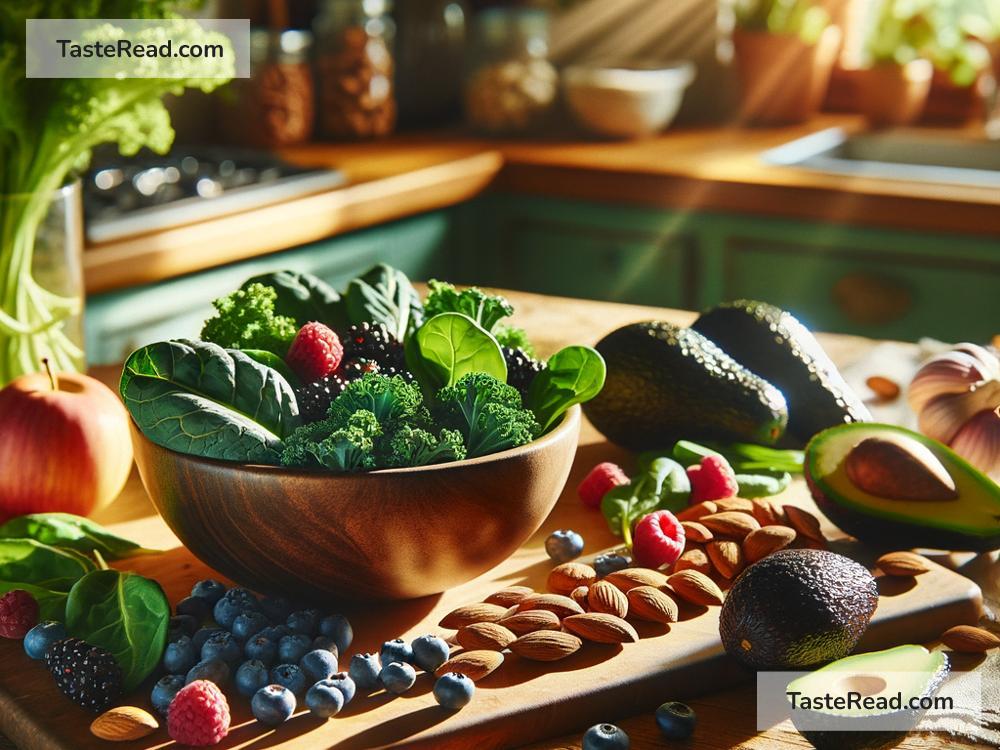Foods That Reduce the Risk of Skin Infections
Skin infections are often caused by bacteria, viruses, or fungi entering the skin and disrupting its protective barrier. While maintaining proper hygiene and skincare routines is essential for preventing infections, what you eat also plays a big role in keeping your skin healthy and resilient. Your diet can strengthen your immune system, boost skin health, and reduce the risk of infections. This article will explore simple, accessible foods that can help protect your skin from infections and inflammation.
1. Garlic: Nature’s Antibiotic
Garlic has long been famous for its antibacterial, antiviral, and anti-inflammatory properties. It contains a compound called allicin, which helps fight harmful organisms like bacteria and fungi. Eating garlic regularly can boost your immunity and make your body more effective at defending itself against skin infections.
How to include garlic in your diet:
– Add minced garlic to your sauces, soups, and stir-fries.
– Roast garlic cloves for a sweet and flavorful addition to your meals.
– Consume raw garlic in small amounts to maximize its health benefits.
2. Yogurt: A Probiotic Powerhouse
Yogurt is packed with probiotics—healthy bacteria that help keep the gut and skin microbiome balanced. A balanced microbiome in your gut can enhance immunity, which is essential for preventing infections. Studies suggest a strong link between gut health and skin health.
Choose plain, unsweetened yogurt, as added sugar can feed bad bacteria in your body instead of supporting beneficial ones.
How to include yogurt in your diet:
– Eat yogurt as a snack or breakfast.
– Blend with fruits or nuts for a healthier dessert.
– Make salad dressings or smoothies using yogurt.
3. Green Tea: The Antioxidant Superstar
Green tea contains high levels of polyphenols, which are antioxidants that fight free radicals causing damage to your skin cells. Its anti-inflammatory properties can help reduce redness and swelling and make your skin less vulnerable to infections like acne.
How to enjoy green tea:
– Drink one or two cups daily for optimal benefits.
– Use cooled green tea as a toner or face rinse for extra skin protection.
4. Turmeric: The Golden Spice for Skin Health
Turmeric is a powerful spice that has been used for centuries in herbal medicine. It contains curcumin, a compound with strong anti-inflammatory, antibacterial, and antifungal properties. Turmeric not only helps fight infections but also speeds up the healing process if your skin is damaged.
How to use turmeric:
– Make turmeric tea by mixing the spice with warm water or milk.
– Add turmeric powder to curries, rice, or stir-fries.
– Use turmeric pastes in DIY skincare masks, but consult a dermatologist beforehand.
5. Fatty Fish: Omega-3 for Skin Defense
Fatty fish like salmon, mackerel, and sardines are rich in omega-3 fatty acids. These healthy fats are anti-inflammatory and help your skin stay hydrated, which is essential to keeping it strong against infection. Omega-3s also improve immunity, making your body better equipped to fight off harmful microorganisms.
How to enjoy fatty fish:
– Grill or bake salmon with your favorite spices.
– Include fatty fish in salads, tacos, or sandwiches.
– Opt for canned sardines and mackerel as quick, healthy snacks.
6. Citrus Fruits: Vitamin C Boost
Citrus fruits such as oranges, lemons, limes, and grapefruits are packed with vitamin C, a critical nutrient for maintaining healthy skin. Vitamin C promotes collagen production, which strengthens the skin’s barrier, making it harder for infections to take hold. It also supports your immune system for faster recovery from skin-related issues.
How to include citrus fruits in your diet:
– Start your day with fresh orange juice or a grapefruit.
– Add lemon or lime juice to dressings, marinades, or teas.
– Snack on slices of oranges for a refreshing boost.
7. Spinach: The Green Glow
Spinach is a nutrient-dense vegetable that contains vitamins A, C, and E, along with zinc and iron. These nutrients enhance skin health and immunity. The antioxidants in spinach protect your skin from environmental damage, while its antibacterial properties help reduce the risk of infections.
How to eat spinach:
– Add spinach to salads, soups, or sandwiches.
– Blend spinach into smoothies for a nutritious punch.
– Sauté spinach with garlic and olive oil for a side dish.
8. Nuts and Seeds: Tiny Immune Boosters
Nuts like almonds, walnuts, and seeds like sunflower seeds and chia seeds contain essential nutrients like zinc, vitamin E, and healthy fats. Zinc is especially helpful for healing wounds and fighting off bacteria that can infect your skin. Vitamin E is a powerful antioxidant that protects the skin from damage.
How to add nuts and seeds to your diet:
– Snack on a handful of mixed nuts.
– Sprinkle seeds over oatmeal, yogurt, or salads.
– Use nut butters like almond or cashew butter as spreads.
Takeaway
While skincare products and routines are important, your diet plays an equally critical role in maintaining strong and infection-resistant skin. Foods such as garlic, yogurt, green tea, turmeric, fatty fish, citrus fruits, spinach, nuts, and seeds nourish your skin from the inside out, boosting its defense mechanisms against harmful organisms.
Combining a balanced diet with good skincare practices can dramatically reduce your likelihood of developing skin infections. So, the next time you’re planning your meals, don’t forget to include these skin-loving foods to keep your skin healthy and glowing!


